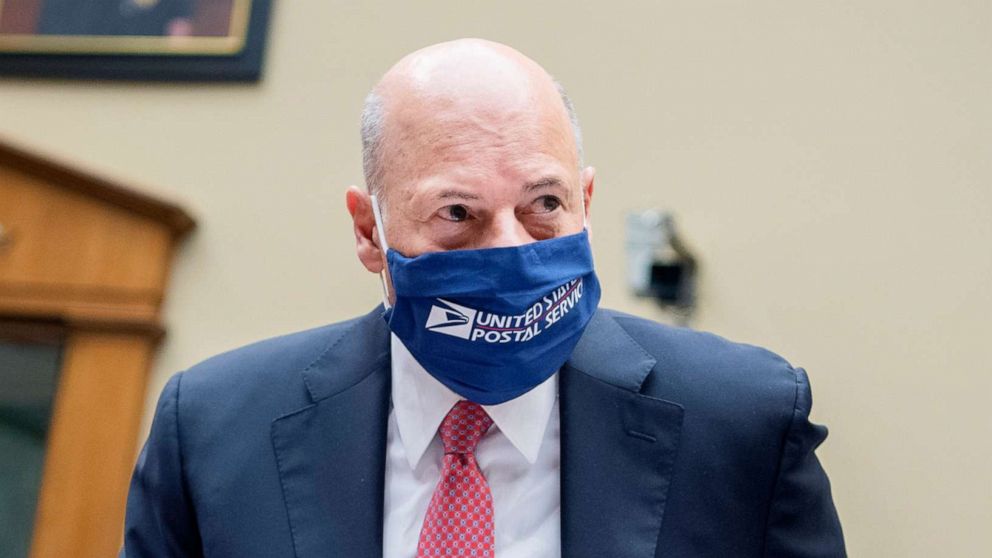Election officials encourage voters to use state guidelines, ignore 'misinformation' on Postal Service mailers
State election officials condemned the Postal Service this week for distributing an informational mailer about absentee voting that they said would confuse voters, urging them to check state guidelines instead, and prompting embattled Postmaster General Louis DeJoy to vow Thursday that he "will do better next time" -- without explaining when next time would be.
A 6-by-9-inch postcard is threatening to broaden the growing rift between state election officials and the U.S. Postal Service, with each side accusing the other of further muddying the already complex state-by-state rules for absentee voting.
The informational mailer, distributed by the Postal Service to every residential address across the country in recent days, was supposed to encourage those interested in voting by mail to "plan ahead" by requesting a ballot more than two weeks before the election, then returning the ballot at least one week before the election.
But that message almost immediately attracted the ire of state leaders, whose public reactions ranged from "missed the mark" to "disinformation." Those officials accused the Postal Service of confusing voters, as the mailers' advice ran counter to some states' voting rules and conflicted with others that automatically send ballots to registered voters.
Their frustration was compounded by the Postal Service's unwillingness to coordinate their outreach with the states, even after state leaders explicitly asked DeJoy to do so.
During a conference call with state leaders on Thursday, DeJoy said it was his "intent" to coordinate with election leaders, but conceded he failed to do so and promised to "do better next time." The Postal Service has defended their mailer as "general all-purpose guidance" for voters and maintained it was not intended to replace state-specific absentee voting rules.
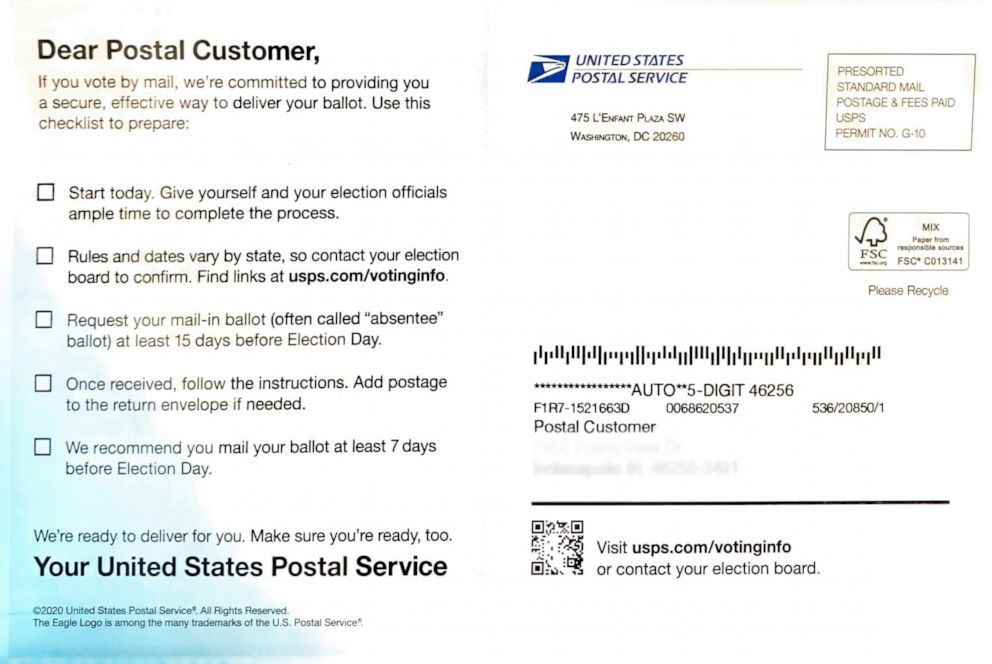
Election experts said the fallout could serve to further undermine the already fragile relationship between Postal Service executives and election chiefs and, by extension, threaten to sow confusion ahead of what is expected to be a record-breaking year of mail-in voting.
Regardless of who is at fault, election experts said the fallout could serve to further undermine the already fragile relationship and, by extension, threaten to sow confusion ahead of what is expected to be a record-breaking year of mail-in voting.
Tammy Patrick, a former state election liaison to the Postal Service, warned that "any time there is wrong information in the public square it is problematic."
"Voters are going to be inundated with information in the coming weeks," said Patrick, who is currently a senior adviser at the nonprofit Democracy Fund. "We want to be sure that we're calling out any sort of activity or action -- on behalf of anyone in the elections environment or ecosphere -- that could impact negatively the voter or the voting process."
In Colorado, where Secretary of State Jena Griswold has already filed a lawsuit against DeJoy and the Postal Service over the postcards, a federal judge has temporarily halted further mailers from being distributed in the state.
Griswold's complaint claims the mailer threatens to "disenfranchise Colorado voters" and is "incorrect in several material ways," specifically noting that registered voters in the state automatically receive a ballot in the mail, rendering moot the Postal Service's guidance that prospective voters should request their ballot 15 days before the election.
The state acknowledged in court documents Wednesday that it was not the Postal Service's intention to sow confusion, but added that, "by providing disinformation to Colorado households, the Postal Service hurt, rather than helped, Colorado voters."
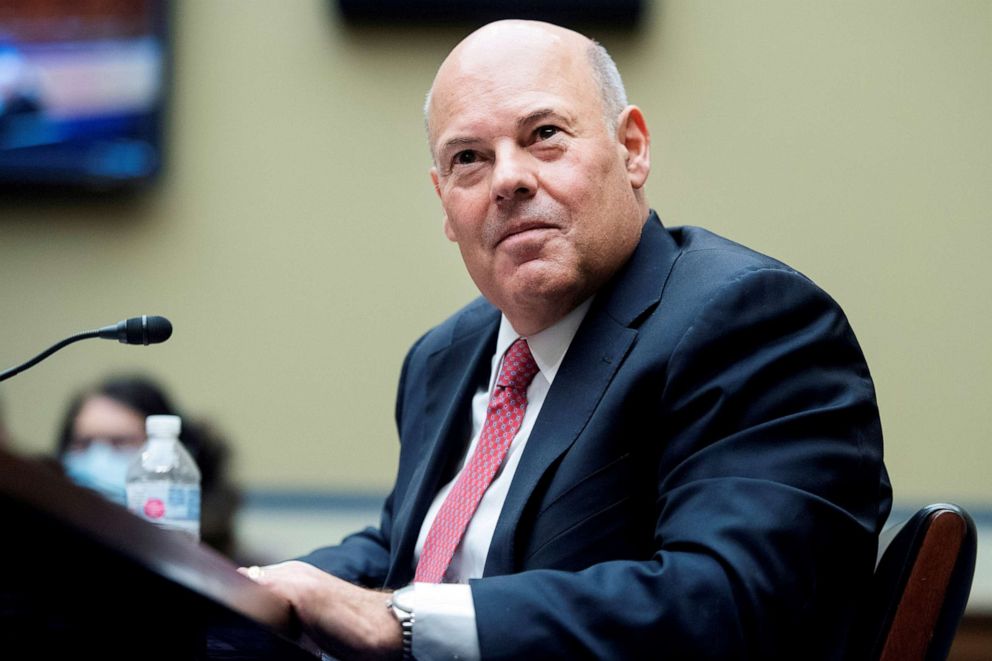
That sentiment was shared by election leaders in other states. Wayne Thorley, Nevada's deputy secretary of state for elections, told a local news station, "I don't think USPS had any sort of malice or were trying to confuse voters intentionally, I just think they missed the mark a little bit in not realizing how different each states election laws are."
"Unfortunately," Thorley continued, "the postcard has caused some confusion in Nevada."
Others reacted in harsher terms, slamming the Postal Service for promulgating information that could confuse voters.
California Secretary of State Alex Padilla said the "inconsistencies between the guidance offered on the USPS postcard and California Elections law" left him "deeply concerned about the potential for voter confusion." In Utah, Lt. Gov. Spencer Cox sought to correct "misinformation" in the postcard in a press release. New Jersey Secretary of State Tahesha Way warned on Twitter that information on the Postal Service's mailer "conveys certain information that does not apply to NJ voters."
The dismay expressed by election leaders across the country could have been avoided, according to Maria Benson, a spokesperson for the National Association of Secretaries of State. Benson said this specific issue was raised during a meeting with DeJoy last month -- before the mailers were distributed.
"During the Aug. 27 meeting with the Postmaster and USPS staff, we urged staff to share any mailer with NASS first, so that we could help with any edits that may be necessary because of the differing election laws around the U.S.," Benson said. "No draft, however, was shared with us before it began to be sent in the mail."
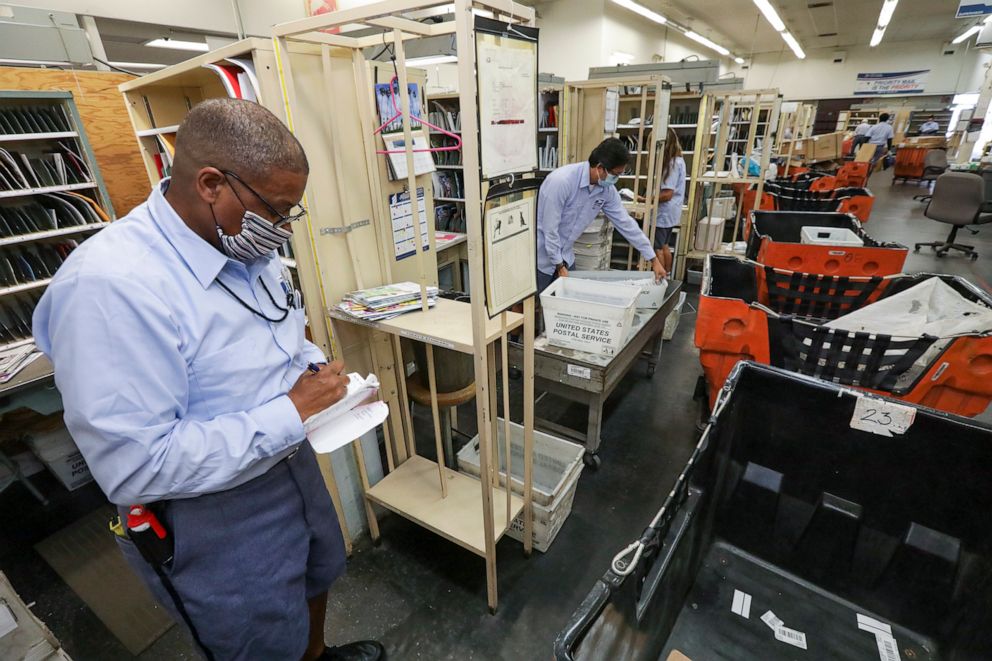
Patrick echoed that sentiment, calling it "unfortunate" that the Postal Service neglected to confer with state leaders.
"The postal service has never done anything like this before," Patrick said. "When you look at the mailer, if they have added a half a dozen words it would have been a lot better."
On Thursday, during his conference call with the state election leaders, DeJoy said he "previewed the fact that the mailer was coming in our last call," and it was the Postal Service's "intent to give you a heads-up to see the mailer in advance."
"But it started hitting households ... the same day we sent it to NASS, which we understand was not enough of a heads-up for you," DeJoy continued. "We will do better next time."
DeJoy added that the mailer was distributed as a way "to craft one common message to encourage voters to inform themselves on how to vote by mail effectively."
"The concern that some of you have voiced about the mailer underscores why we set out to create one message and not state-specific guidance," he said.
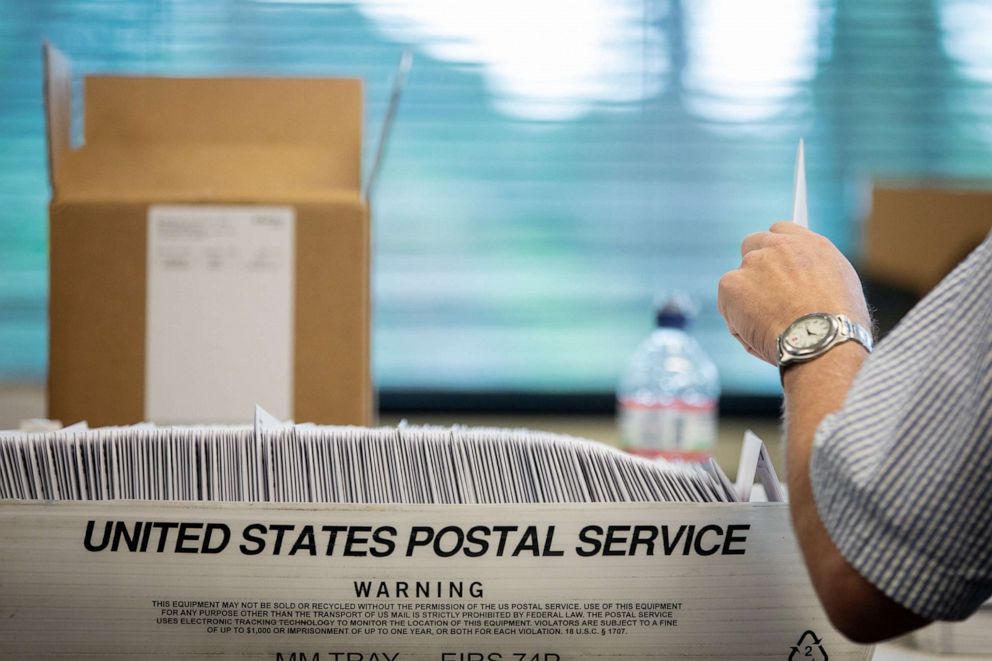
The mailer dispute marks the latest chapter in a the increasingly fraught relationship between election leaders and the mail agency. In July, a letter from the Postal Service warning election officials in 46 states and the District of Columbia that their absentee voting rules were "incongruous" with the agency's mail delivery service standards irked many state leaders.
Meanwhile, President Donald Trump continues to cast doubt on the viability of absentee voting in states that plan to send ballots to all registered voters in the coming weeks. In a pair of tweets Thursday morning, Trump claimed without evidence that "the new and unprecedented massive amount of unsolicited ballots" will lead to "MAYHEM" and mean the "Election result may NEVER BE ACCURATELY DETERMINED."
Despite the unrelenting controversy, the Postal Service maintains it will have sufficient resources to execute absentee mail ahead of the November election.
